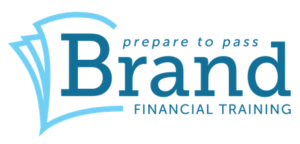For this month’s article for Professional Paraplanner, the Band Financial Training technical team look at circumstances in which the FSCS will pay out, together with the financial limits for each type of product covered.
The Financial Services Compensation Scheme (FSCS) protects consumers where firms are unable to meet claims made against them due to insolvency. However, the FSCS will only pay out if it determines that a firm is in default.
Deposits
Protected deposits at banks, building societies and credit unions are covered. This includes UK branches of European Economic Area (EEA) authorised firms who are UK authorised and members of the FSCS. Deposits held with an EEA branch of a UK firm are not protected by the FSCS but should be protected by an EEA deposit guarantee scheme.
Ordinarily, 100% of the first £85,000 is protected. Where an account is held jointly, the limit is doubled to £170,000 (i.e. £85,000 per accountholder)
A £1 million protection limit is available for six months for temporary high balances due to, for example, a divorce settlement, an inheritance, or the sale of a home.
Care should be taken to ensure that no more than £85,000 is held in any single deposit-taking institution. Sometimes clients may not be aware that they have exceeded this limit as some banks and building societies are owned by other banks and building societies. For example, the Nationwide Building Society owns the Cheshire, the Derbyshire and the Dunfermline Building Societies. These all share the same FSCS deposit-taking licence and therefore a customer is limited to protection of £85,000 across all four organisations.
Investments
If you have an investment (or you were advised to invest) and the provider or adviser has gone out of business, you may be able to claim compensation with FSCS. However, claims for poor performance are not valid.
The limit on investments is also 100% of the first £85,000.
Insurance
With an insurance policy, the policy itself may be replaced with the FSCS paying the new provider any money due. If it is not replaced, then the FSCS can refund the remaining portion of the policy premium. However, only 90% of the refund will be paid.
Insurance claims are either entitled to 100% or 90% as follows:
As mentioned in the table above, it’s 100% of the claim in relation to an insured personal pension or a pension provider. However, it’s 100% of the first £85,000 for a SIPP provider as these come under investments.
For intermediary firms, claims relating to long-term insurance are generally covered up to 90% with no upper limit. For compulsory insurances, the figure is 100%.
Mortgage Advice
You can claim compensation from the FSCS if you’ve received bad mortgage advice that caused you to lose money or if you were mis-sold a mortgage endowment. The firm, broker or adviser you dealt with must have failed for the FSCS to be able to help. The limit is £85,000.
Debt Management
Debt management plans are now covered by the FSCS. Again, the limit is £85,000. Several conditions apply, including:
- The firm must have failed on or after 1 April 2018.
- The firm must have been authorised by the FCA.
- The firm must hold client money.
- The firm must have received or held the money through a UK branch in connection with the regulated activities of debt counselling or debt adjusting.
- The client money reconciliation process must show a shortfall in the amount of client money the firm held for the claimant.
- The firm (or its principals) must be unable to meet claims for compensation.
- The complainant must be eligible.
Neither money paid by a debtor under an individual voluntary arrangement nor debt advice are protected.
Funeral plans
Funeral plans are the FSCS’s most recent addition. If a funeral plan provider goes out of business, the FSCS will aim to give those affected the option of entering into a new like-for-like (or as like-for-like as possible) contract with a replacement regulated funeral plan provider. If one is not available, or the claimant would prefer compensation, the FSCS will calculate the amount by reference to what it would cost to buy the same plan on today’s market.
Compensation may be available if bad advice was given to take out a funeral plan or if the funeral plan was set up incorrectly.
If a plan holder were to die after their funeral plan provider fails, but before the FSCS has secured a new funeral plan contract or paid compensation, the FSCS may be able to help with the provision of a funeral.
The usual £85,000 limit applies.
About Brand Financial Training
Brand Financial Training provides a variety of immediately accessible free and paid learning resources to help candidates pass their CII exams. Their resource range ensures there is something that suits every style of learning including mock papers, calculation workbooks, videos, audio masterclasses, study notes and more. Visit Brand Financial Training






























